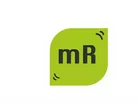MoodRhythm Wins mHealth Award For Bipolar App

Innovative mHealth application MoodRhythm helps people suffering from bipolar disorder learn about and monitor their personal rhythms and has recently won the $100,000 Heritage Open mHealth Challenge.
The challenge to develop mHealth application that would deliver open communication and function across multiple devices was co-sponsored by Heritage Provider Network, Open mHealth, and the University of California, Los Angeles.
MoodRhythm was developed by a team led by Tanzeem Choudhury and uses a phone’s microphone, light sensors and accelerometer to monitor sleep and social patterns and combines this information with what the patient reports about daily activities, food routines and mood to learn what situations have positive or negative outcomes. The app gives the patient helpful advice to maintain a regular daily rhythm, while gathering vital information for the patient’s doctor. The team is contributing a routine, sleep, and sensing module to Open mHealth.
“Rhythms guide our lives,” Choudhury says. “Our biological clocks tell us when we need to sleep, eat and wake. When these rhythms are interrupted or obstructed, it can be difficult for our bodies to get what they need to stay healthy and balanced.”
Bipolar disorder, also called manic depression, affects some 5.7 million American adults in a given year and is characterized by extreme mood swings from a happy, hyperactive state to extreme depression. It is associated with poor functional and clinical outcomes, high suicide rates and huge societal costs.
The app can replace traditional paper diaries that patients often find difficult to maintain. It was designed in collaboration with patients and clinicians, and is based on Choudhury’s earlier experiments with using smartphones sensors to detect social interactions, stress and sleep. To protect privacy, the phone does not listen in on the content of speech, but notes variations in pitch, volume, speaking rate and other characteristics to measure emotional states.
“It is one of the greatest challenges in health care to develop cutting-edge technology that not only meets clinical needs but that can be incorporated with ease into patients’ lives,” Choudhury said.
Learn More About MoodRhythm



